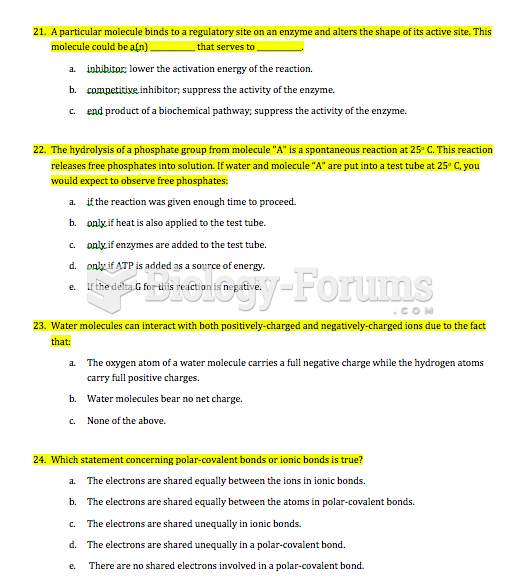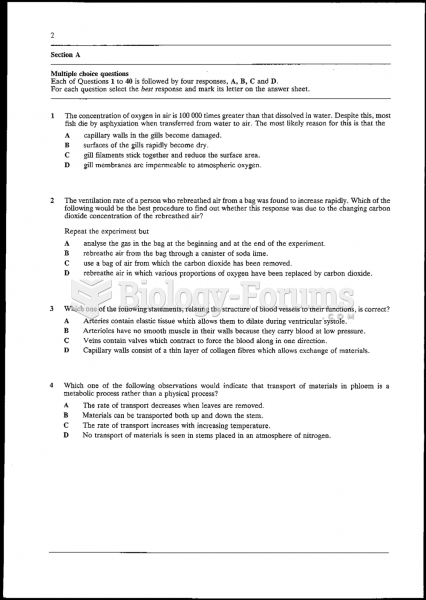|
|
|
The most common treatment options for addiction include psychotherapy, support groups, and individual counseling.
Cyanide works by making the human body unable to use oxygen.
Drugs are in development that may cure asthma and hay fever once and for all. They target leukotrienes, which are known to cause tightening of the air passages in the lungs and increase mucus productions in nasal passages.
For high blood pressure (hypertension), a new class of drug, called a vasopeptidase blocker (inhibitor), has been developed. It decreases blood pressure by simultaneously dilating the peripheral arteries and increasing the body's loss of salt.
Cancer has been around as long as humankind, but only in the second half of the twentieth century did the number of cancer cases explode.







